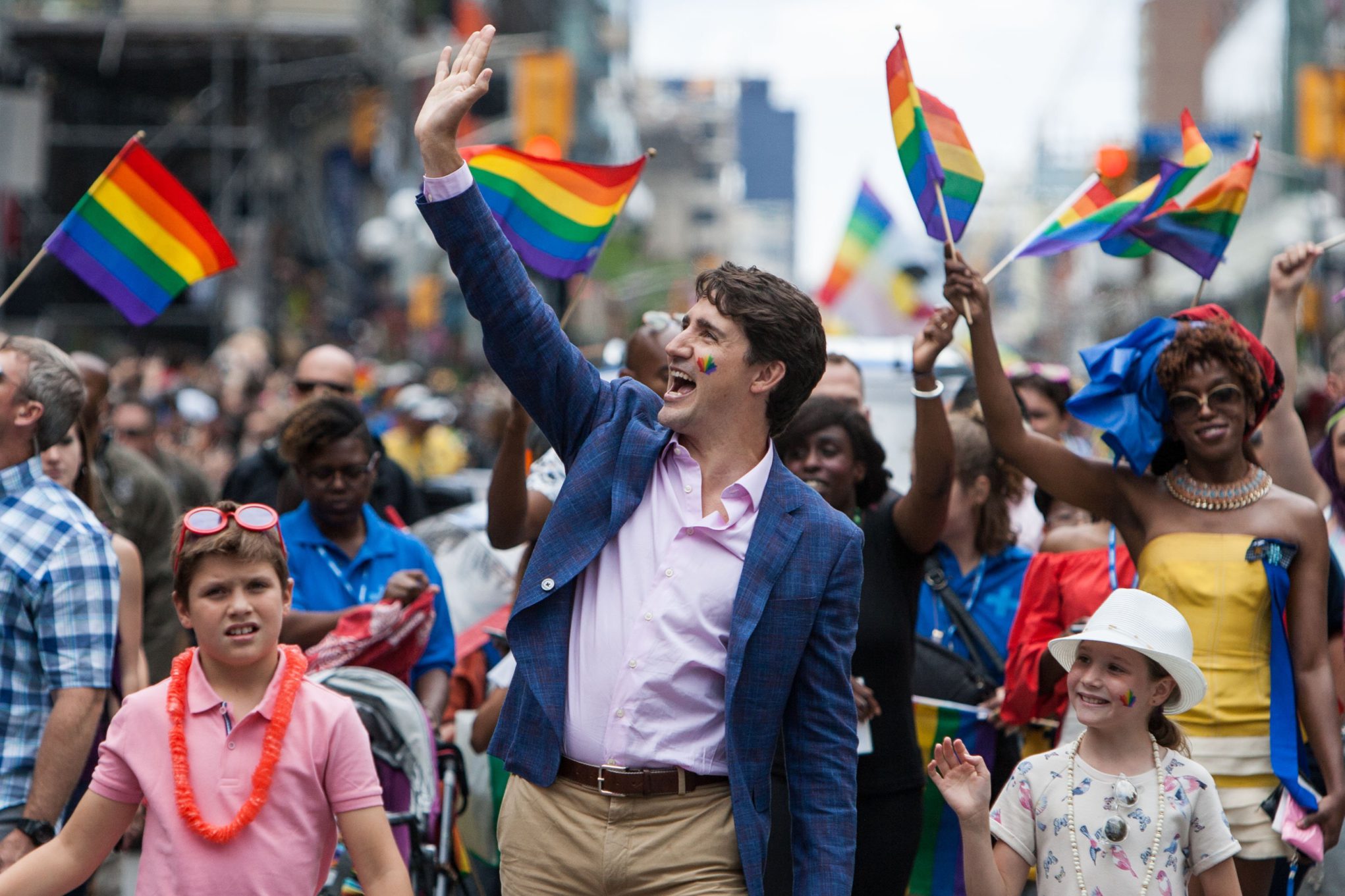Last year in this space, I predicted that with dark political forces emerging in the United States and Britain, Justin Trudeau would rise as a global leader on LGBT rights. As I sit today looking at Trudeau’s baby blues and spread legs on the cover of the UK’s Attitude magazine, which has proclaimed him “Arguably the world’s most pro-LGBT political leader,” I feel an overwhelming responsibility to use my obvious predictive powers for good.
Therefore, looking ahead to 2018, I see the Democrats sweeping the midterms, following which Donald Trump and Mike Pence will immediately perish of an incurable and painful diarrhetic fever, leaving Nancy Pelosi to be sworn in as the 46th president of the United States. I further predict that Marvel Studios will cast me as Wolverine in the next X-Men movie, Chris Hemsworth will ask me to marry him, and Sam Smith will retire from music and social media for all time.
Jokes aside, it was a banner year for the LGBT rights movement in Canada. Just in time for Pride season, the federal trans rights bill passed into law. Trans rights bills were also passed in Yukon, Nunavut and New Brunswick, meaning trans people finally have explicit legal protection from discrimination in every part of Canada.
Governments also started putting the law into practice by updating how gender is noted on various pieces of ID. Passports can now be issued with an “X” option, while the government has committed to reviewing the necessity of its gender data collection in general.
Provincially, Alberta passed the strictest law in the country requiring schools to provide gay-straight alliances for students. It’s a good example for other provinces to follow, especially the ones that lack any statutory requirements to protect queer students.
And the federal justice department released a report calling for sweeping reforms in the prosecution of HIV-transmission cases. So far, only Ontario has announced that it is curtailing prosecutions, but hopefully the remaining provinces will not be far behind.
In the last few weeks, we also saw the prime minister give a tearful apology in the House of Commons for past government persecution of LGBT people. The apology was accompanied by $145 million in compensation — $110 million of which will be go towards settling a class-action lawsuit brought by queer people who were dismissed from the federal public service and the military — and the introduction of a bill to expunge the convictions of people who were persecuted under Canada’s old gross indecency, buggery and anal sex laws.
That bill was sped through the House of Commons in just two weeks, but only got through its first reading in the Senate before that body decided to break early for the Christmas holiday. I guess five weeks off wasn’t quite enough for our beleaguered Senators, but the bill is expected to pass in February after they return.
While the apology does not completely close the door on anti-LGBT oppression in Canada, it was an important milestone.
But to put the government’s lofty words into action in the new year, the federal and provincial governments need to take real action.
The federal Liberals’ Bill C-32 to repeal the law that still prohibits many forms of anal sex stalled after first reading when it was introduced in Parliament over a year ago.
The fact that the government has not pushed this bill along, especially given that no parties expressed opposition to it, does not speak well of the urgency the Liberals feel for addressing one of the main things they apologized for just a few weeks ago.
The anal intercourse repeal has now found itself tied up in the more complicated Bill C-39, which also stalled after first reading. That bill seeks to repeal several other unconstitutional “zombie” sections of the Criminal Code — such as the bans on abortion and publishing fake news — at the same time, which will likely make it more controversial and could delay its passage through both houses.
The government also has limited time to make good on the justice minister’s two-year old promise to review the previous government’s likely unconstitutional sex work law. If a proposal is not tabled in early 2018, don’t expect it to materialize after, as the government prepares for a 2019 election. If the minister does make good on this, hopefully she’ll also repeal other indecency, obscenity, and bawdy house laws that remain in the Criminal Code and continue to be used disproportionately against queer people.
It’s worth wondering if the prospect of an upcoming election will finally motivate this government to make good on its 2015 election promise to end the ban on blood donations from men who have sex with men. That promise seems to have vanished amid studies and reviews at Health Canada.
In an incredibly tumultuous global environment, Canada stood out in 2017 as a remarkable island of stability, decency and progress. The rest of the world has absolutely taken note. But will Canada use the attention it’s brought to LGBT issues to lead forcefully on global rights in 2018? We shall see.


 Why you can trust Xtra
Why you can trust Xtra


